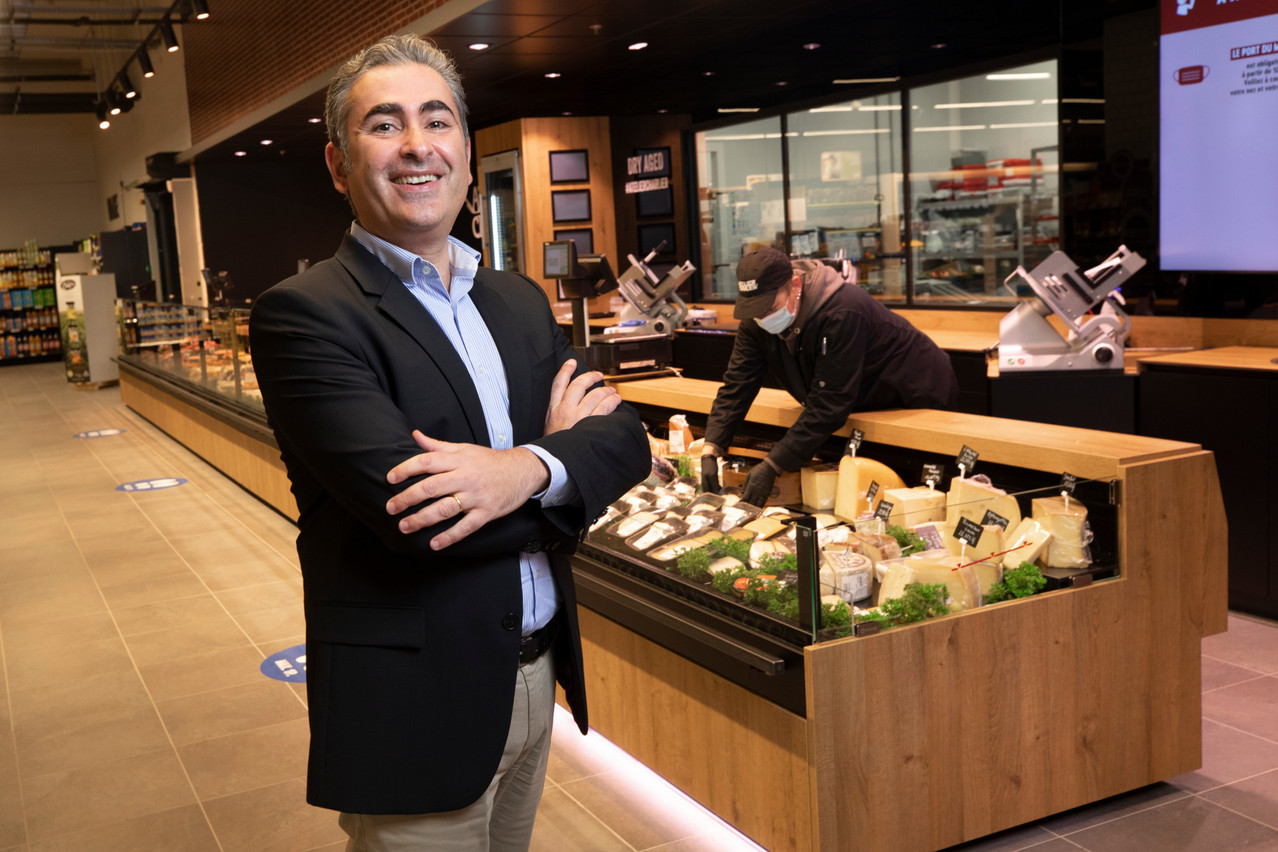From “ready-to-eat” products for workers in the Capellen business park, where it is located, to large fruit and vegetable stalls, the latest Delhaize supermarket, which opened at the beginning of the month opposite the Kichechef shop, presents itself as a "brand new concept" focused on convenience, inspiration and innovation.
“Many studies show that the hypermarket format is in trouble, customers want proximity, and we are positioning ourselves on 'pleasure' food shopping rather than the obligatory chore,” explains Cédric Gonnet, country manager of Delhaize Luxembourg, to Delano’s sister publication Paperjam.
The chain currently has 57 points of sale in Luxembourg--13 of which are integrated--with mostly at least 1,400m2. In Capellen, Delhaize is setting up camp in an already popular trading area featuring Cactus, Pall Food Market, Match, Aldi, not to mention Lidl, which should open in Koerich next summer. “We believe we have a different offer from our competitors, with our three own brands that cover all segments and different product niches,” says the manager.
In addition to the products grouped by category, Delhaize says it is working to integrate each niche into the entire range. In short, plant-based alternatives to meat have their own section, but vegan products can also be found in the traditional section.
Two new outlets in 2022
With 57 outlets in Luxembourg, Delhaize is pursuing its strategy of being present within a five to ten minute drive of the country's main population centres. “Today, we are almost there. There are still three or four potential shops left, but we are keeping an eye on the country's developments, both in terms of demographics and infrastructure,” adds Gonnet, who has been at the helm of the chain since January.
In April 2022, a new Delhaize Proxy is expected to open in Dippach, followed by a Delhaize supermarket planned in Luxembourg-Hamm at the end of next year. In the meantime, the Proxy in Esch-sur-Alzette will move 130 metres to a new, more modern location.
By strengthening its network, Delhaize is clearly positioning itself in support of physical business. “We believe that when you are five kilometres or five minutes away from every customer in Luxembourg, a web offer can certainly simplify the customer's life, but it is not essential in Luxembourg,” explains the manager.
Challenges ahead
With 59 locations by the end of 2022, Delhaize will continue to closely follow Cactus. The latter has 58 dedicated food stores (soon to be 59 by December with a new Shoppi) and is expected to grow by five units by 2022. “Cactus is neither a model nor an enemy. We have our way, they have theirs. Cactus is a Luxembourg family business, Delhaize is a Belgian-Dutch group, our agendas are not the same,” underlines Gonnet.
He says he has no real competitor, “but colleagues who have a complementary positioning”. He adds that “Delhaize does not want to be the number one food retailer, but rather to be recognised as the favourite of our customers”.
To achieve this, the company is banking on its range, but also on service. Prices are currently not at the top of the agenda items to address for Delhaize. And this is all the more true at a time when it is facing an increase in its cost lines. The indexation of salaries, the increase in the price of raw materials, packaging, transport and sometimes even the indexation of rents are all challenges for the supermarket chain. Having moved to the Grand Duchy in 2012, Gonnet says he is aware of the competition on a national scale, but also in the Greater Region.
This story was first published in French on . It has been translated and edited for Delano.
